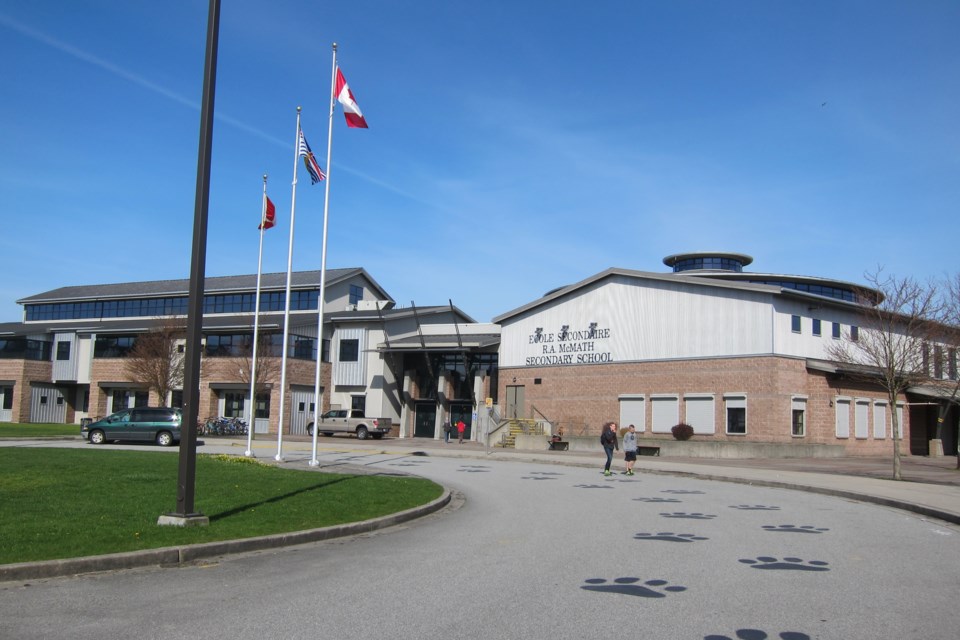Richmond’s school district has reduced its greenhouse gas (GHG) emissions by 25 per cent over the past five years.
In total, the district reduced its carbon emissions by 1,700 tonnes, according to the school board — the equivalent of taking 350 cars off the road, and saving approximately $60,000 worth of carbon taxes.
This was just one of the milestones the board marked in 2019 as part of its environmental stewardship policy, which the board of education adopted in 1998.
According to district spokesperson David Sadler, to help reduce emissions, low-efficiency natural gas-fired boilers at 27 schools have been converted into higher efficiency units since 2007, along with high efficiency water heater upgrades and the use of on-demand hot water systems.
McNair secondary and Burnett secondary, as well as multiple parking lots, were upgraded to energy-efficient LED lighting.
Sadler also said that the district’s annual Eco-Wise program, which has focused on sustainable behavior since 2004, has had a “significant impact.”
“Through the actions of site-based Green Teams at 41 schools, the district is making great strides in energy and water conservation, waste reduction, green gardening, to name a few,” said Sadler.
Earlier this year, a solar wall was installed at McMath secondary, with FortisBC contributing $91,000 for the project.
The solar wall will save the equivalent of seven per cent of McMath’s natural gas consumption, according to the board — enough to fuel an average elementary school for four months.
The board also approved $200,000 for solar energy initiatives this year, $40,000 of which was allocated to the installation of 24 solar panels on the roof of Richmond secondary.
According to the school board, other schools will receive $1,000 grants to fund school-based solar energy projects.
In September, Ferris elementary was named the greenest school in Canada for its environmental initiatives, for example, reducing garbage by 80 per cent, growing fruits and vegetables in school gardens, replacing vending machines with refillable water coolers and encouraging students to walk and cycle to school.



